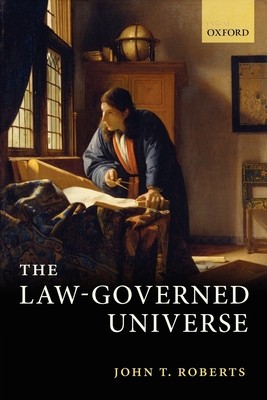
- We will send in 10–14 business days.
- Author: John T Roberts
- Publisher: Oxford University Press (UK)
- ISBN-10: 0199655936
- ISBN-13: 9780199655939
- Format: 15.5 x 23.1 x 2.3 cm, minkšti viršeliai
- Language: English
- SAVE -10% with code: EXTRA
Reviews
Description
John T. Roberts presents and defends a radically new theory of laws of nature, the Measurability Account. Though consistent with a Humean ontology, Roberts's theory differs sharply from the most influential Humean theory of laws, David Lewis's Best-System Analysis. Unlike other Humean theories, the Measurability Account affirms that there is an important sense in which the laws govern the universe, rather than simply describing it economically. Yet unlike non-Humean theories, it requires only minimal metaphysical commitments. In this way, it combines the advantages of Humean and non-Humean approaches to laws, while avoiding the pitfalls of each. At the heart of the Measurability Account are two new ideas: that lawhood is not a property of facts but rather a role that a proposition can play within a scientific theory, and that what is essential to laws is that they guarantee the reliability of methods of measuring natural quantities. On the basis of these ideas, Roberts argues
that we can offer an informative and compelling explanation of why laws have the peculiar counterfactual resilience that sets them apart from accidental uniformities.
EXTRA 10 % discount with code: EXTRA
The promotion ends in 23d.12:21:08
The discount code is valid when purchasing from 10 €. Discounts do not stack.
- Author: John T Roberts
- Publisher: Oxford University Press (UK)
- ISBN-10: 0199655936
- ISBN-13: 9780199655939
- Format: 15.5 x 23.1 x 2.3 cm, minkšti viršeliai
- Language: English English
John T. Roberts presents and defends a radically new theory of laws of nature, the Measurability Account. Though consistent with a Humean ontology, Roberts's theory differs sharply from the most influential Humean theory of laws, David Lewis's Best-System Analysis. Unlike other Humean theories, the Measurability Account affirms that there is an important sense in which the laws govern the universe, rather than simply describing it economically. Yet unlike non-Humean theories, it requires only minimal metaphysical commitments. In this way, it combines the advantages of Humean and non-Humean approaches to laws, while avoiding the pitfalls of each. At the heart of the Measurability Account are two new ideas: that lawhood is not a property of facts but rather a role that a proposition can play within a scientific theory, and that what is essential to laws is that they guarantee the reliability of methods of measuring natural quantities. On the basis of these ideas, Roberts argues
that we can offer an informative and compelling explanation of why laws have the peculiar counterfactual resilience that sets them apart from accidental uniformities.


Reviews